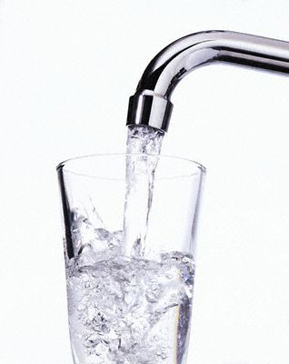The biggest con job perpetrated on the consumer is not some shady operation selling bogus cures through TV infomercials. America’s biggest snake-oil salesman is actually the beverage industry, or Big Bev, which resells the simplest and most vital product for thousands of times its value. That product is drinking water.
Multinationals like PepsiCo, the Coca-Cola Company and Nestle rake in a combined $110 billion a year selling bottled water worldwide. In the U.S. alone, more than half the population drinks bottled water, which accounts for about 30% of liquid refreshment sales, far exceeding the sales of milk and beer (only soft drinks sell more).
But the expensive water the beverage industry sells is no better — and possibly worse — than the water you get from your tap (and often, the water they sell is tap water). So how did these companies fool the public into paying a few bucks for something that costs a few pennies per gallon from a faucet?
Fear. These multinationals have spent millions on marketing to convince consumers that tap water tastes bad, contains high levels of contaminants and poses a danger to human health. Municipal water, they claim, is a scourge, and the only way you get drink healthy water is to buy it through private beverage companies, at up to 2,000 times the cost of getting it from a tap.
And it appears that their tactics are working. With some 92% of tap water meeting state and federal standards, the U.S. has the cleanest and safest public water supply in the world. Yet polls have shown that that a great majority of Americansworry a great deal [5] about the public water supply.
To make matters worse, the supposedly healthy alternative is virtually unregulated. The water from a public utility is constantly monitored under Environmental Protection Agency standards, but bottled water does not have to meet those standards. In fact, independent testing of bottled water [6] has indicated that microbiological impurities and high levels of fluoride and arsenic posed health concerns.
Misplaced Doubts

